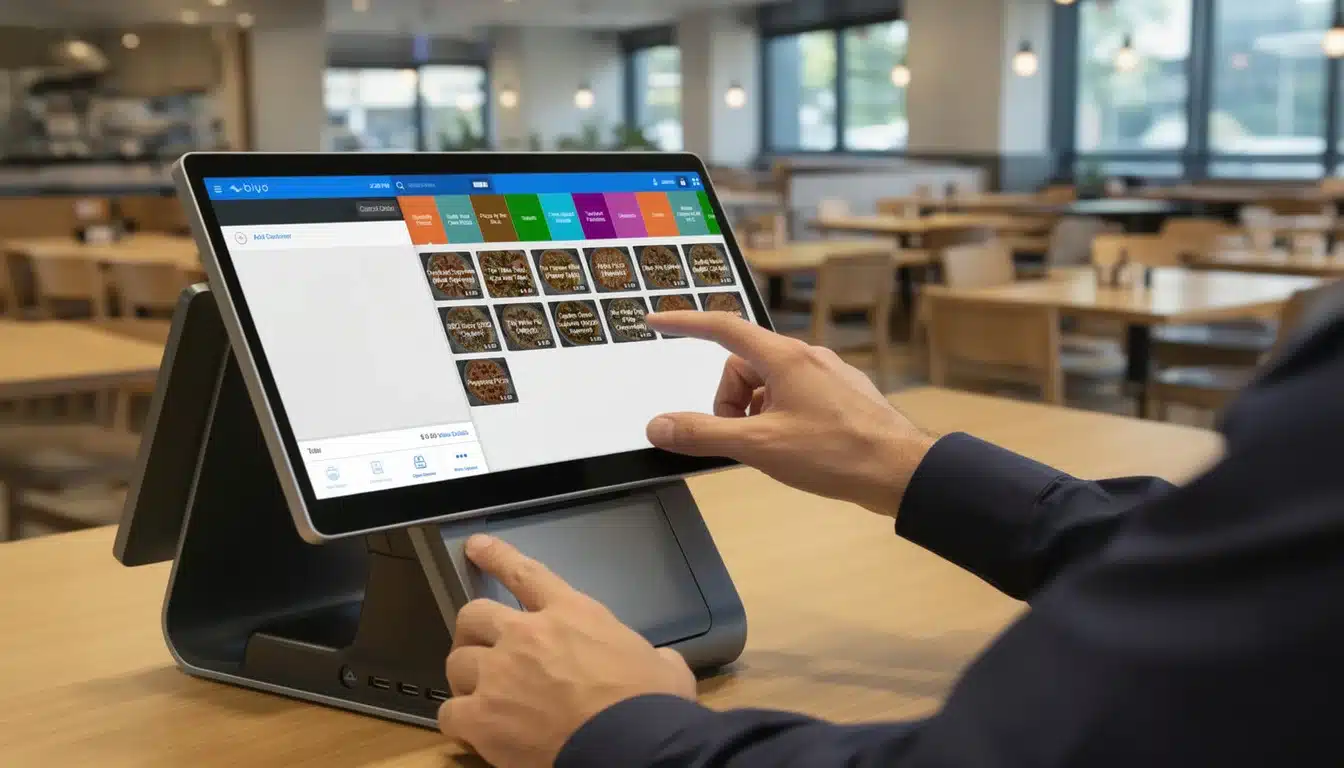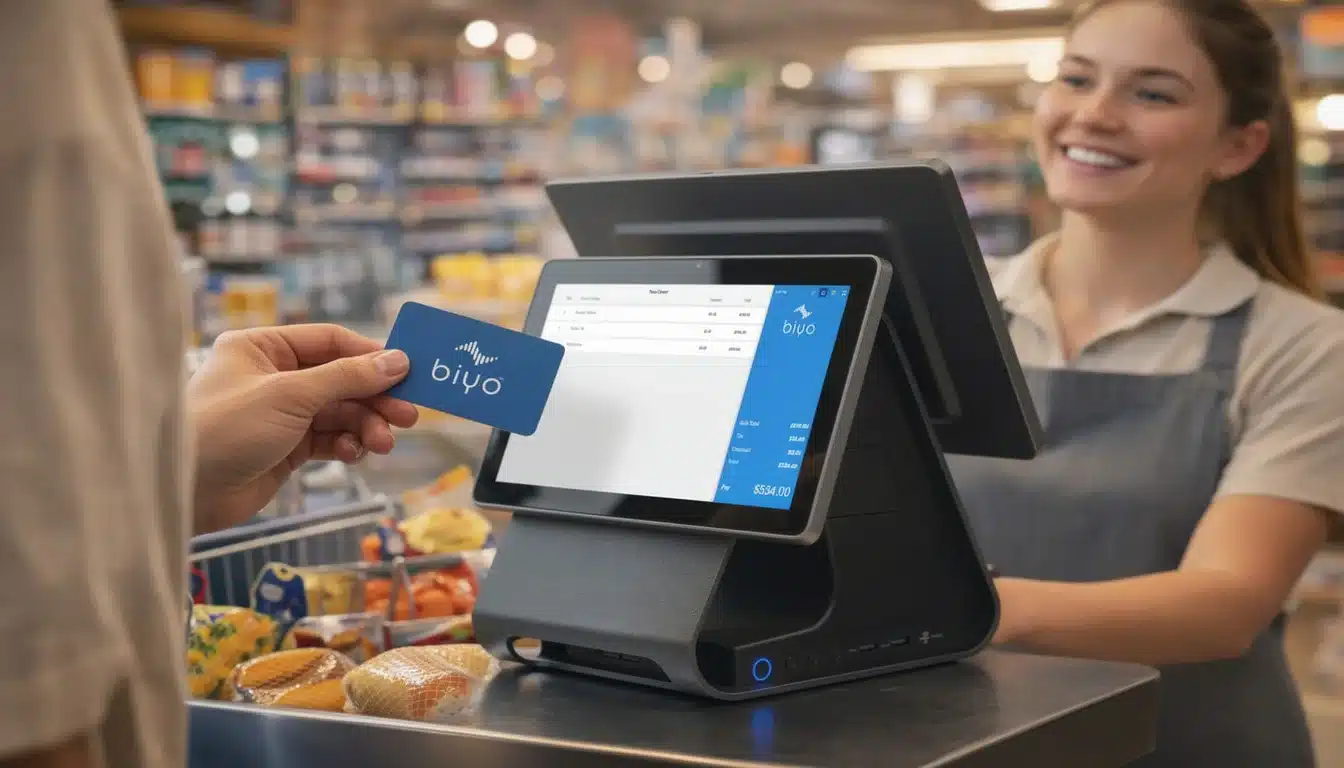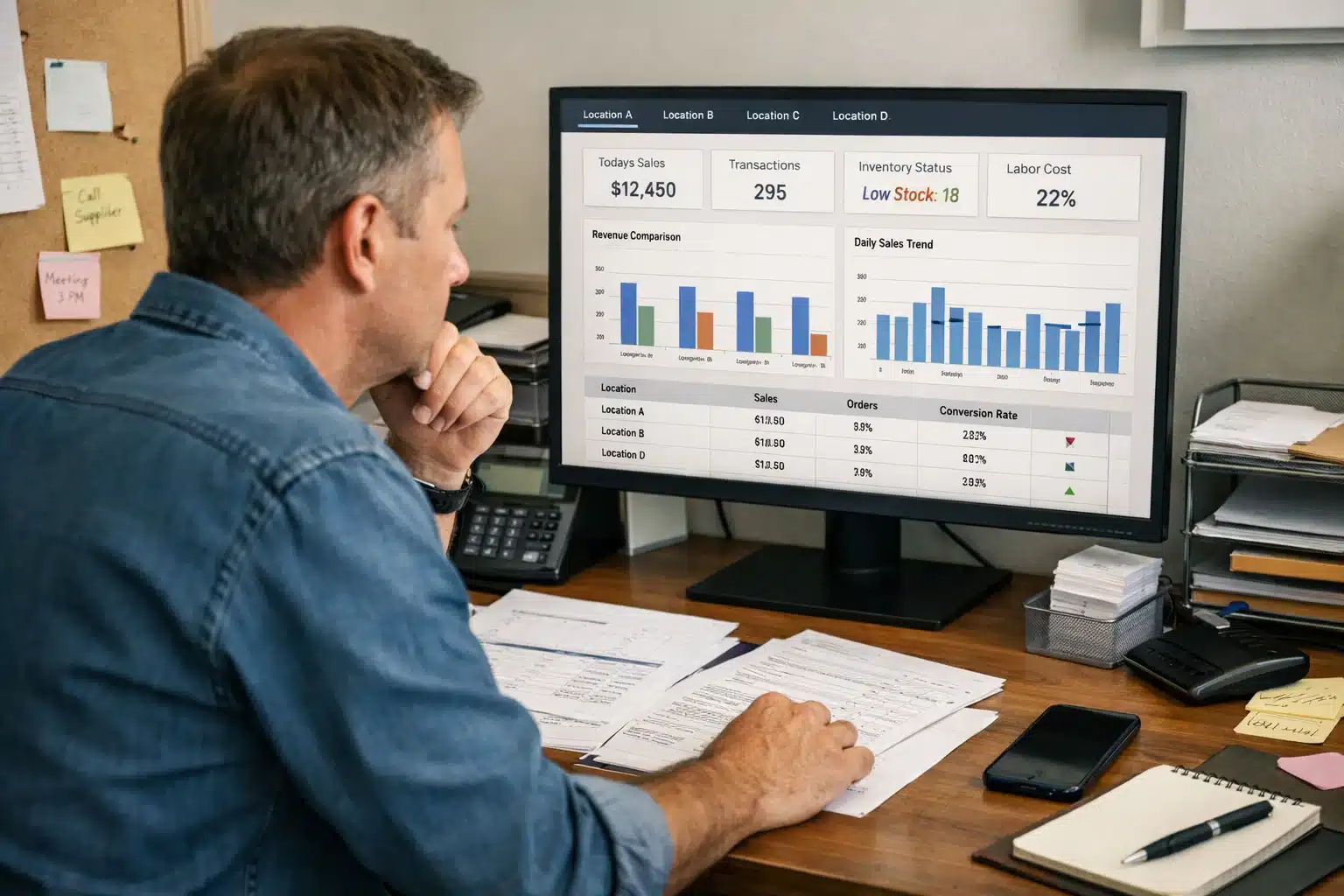Running a restaurant in West Virginia comes with its own set of challenges, from managing staff and tables to keeping up with state compliance and customer expectations. A West Virginia restaurant POS is more than just a cash register—it’s the central hub for your restaurant’s operations. The right system helps you manage orders, streamline payment processing, improve customer loyalty, and ensure your team works efficiently. In this guide, we’ll explore everything you need to know about restaurant POS systems tailored for West Virginia businesses, with detailed insights into features, compliance, and growth strategies.
Table of Contents
- Why a POS System Matters for West Virginia Restaurants
- Core Features of a Modern West Virginia Restaurant POS
- State Compliance and Secure Transactions in WV
- How a POS Drives Growth for West Virginia Restaurants
- Choosing the Best Restaurant POS in West Virginia
- Why West Virginia Restaurants Trust Biyo POS
- FAQ: West Virginia Restaurant POS Systems
Why a POS System Matters for West Virginia Restaurants
A West Virginia restaurant POS is not just about taking payments. It supports every aspect of your business, from managing tables to tracking sales. In today’s competitive market, restaurants in cities like Charleston, Huntington, and Morgantown need technology that keeps them ahead. A modern POS gives you control, saves time, and enhances the guest experience, which ultimately increases profits.
Streamlining Order Management
Order management is one of the most critical parts of restaurant operations. With a West Virginia restaurant POS, orders move seamlessly from the server’s handheld device or terminal directly to the kitchen display system. This reduces errors and ensures food gets to guests faster. Restaurants with busy dining rooms and drive-thru operations benefit most because orders no longer get lost or delayed.
For example, a barbecue restaurant in Beckley may have dozens of orders during peak hours. A reliable point of sale system ensures ribs, sides, and drinks are prepared in the right sequence. This creates a smoother workflow for staff and better experiences for customers. Efficiency also reduces food waste, which cuts costs significantly.
Another benefit is integration with online ordering. More customers in West Virginia now expect digital convenience. A connected POS means takeout and delivery orders arrive directly in the kitchen queue without manual entry, saving valuable time and avoiding mistakes.
Improving Payment Processing
Fast and secure payment processing is vital for restaurants. A West Virginia restaurant POS allows eateries to accept multiple payment types—credit, debit, gift cards, mobile wallets, and even contactless payments. With options like Apple Pay or Google Pay, guests enjoy convenience while restaurants keep checkout times short.
Secure transactions also protect the business from fraud. In a state where hospitality and trust are important, ensuring every payment is processed safely builds customer loyalty. Customers who feel safe are more likely to return. In addition, restaurants save money by reducing chargebacks and fraud claims.
Flexible processing also supports catering and large group events. A restaurant hosting weddings or parties in Charleston can split checks, accept deposits, and send digital receipts directly from the POS. That flexibility improves both efficiency and customer satisfaction.
Enhancing Table and Staff Management
Managing staff schedules and table layouts is challenging for restaurants of all sizes. A modern West Virginia restaurant POS includes table management features that show which tables are occupied, how long they’ve been seated, and who is serving them. This allows managers to rotate staff evenly and maximize seating capacity.
Staff scheduling is also integrated, helping managers assign shifts, track hours, and manage payroll. In West Virginia, where many restaurants operate with seasonal or part-time staff, this feature helps reduce scheduling conflicts and labor costs. Managers can also set alerts for overtime, ensuring compliance with labor laws.
Servers benefit too. They can view their assigned tables, check tips, and even request shift changes through the POS. This transparency improves morale and reduces conflicts, which creates a stronger work environment overall.

Core Features of a Modern West Virginia Restaurant POS
To compete in West Virginia’s dining industry, restaurants need more than basic functionality. The best West Virginia restaurant POS systems include advanced tools for sales reporting, inventory tracking, customer loyalty, and mobile management. These features transform how restaurants operate daily.
Inventory Tracking and Real-Time Analytics
Inventory management is crucial for profitability. A West Virginia restaurant POS tracks every ingredient used in real time. For instance, a pizzeria in Wheeling can see how much cheese, dough, and pepperoni remain after each order. This prevents shortages and reduces waste. Accurate tracking also makes it easier to reorder supplies on time.
Real-time analytics provide owners with valuable insights. Reports show which menu items are most profitable, what times are busiest, and which discounts bring in the most revenue. With this data, restaurant owners make informed decisions quickly. For example, they can adjust prices, schedule more staff during peak hours, or remove underperforming items from the menu.
Cloud-based systems ensure owners can access these reports anytime, anywhere. Whether you are traveling across the state or working from home, your restaurant’s performance data is always available on your laptop or mobile device.
Customer Loyalty Programs and Online Ordering Integration
Loyal customers drive long-term success. A West Virginia restaurant POS helps build loyalty with integrated rewards programs. Customers can earn points for each purchase, receive discounts on birthdays, or get free items after multiple visits. These small gestures encourage repeat visits, which significantly boost revenue.
Online ordering integration is another must-have. Many West Virginia diners expect to place orders online for pickup or delivery. By connecting directly to your POS, online orders are automatically processed, paid, and routed to the kitchen. This reduces labor costs and speeds up preparation times.
Restaurants also benefit from consistent branding. Instead of relying on third-party platforms, they can keep customers in their ecosystem with a custom online ordering platform powered by the POS. This means better profit margins and more control over the customer experience.
Mobile POS and Cloud-Based Management
A mobile POS allows servers to take orders and process payments tableside. This reduces wait times and improves customer satisfaction. For example, a steakhouse in Parkersburg can use tablets to send orders straight to the kitchen without servers running back and forth. Customers appreciate the speed and accuracy of their orders.
Cloud-based management ensures owners can manage one or multiple locations effortlessly. Multi-location POS systems allow franchise owners or expanding businesses to view sales, staff, and inventory across every restaurant in West Virginia. Centralized dashboards make it easy to compare performance and apply strategies consistently.
Cloud solutions also improve security. Data is backed up automatically, reducing the risk of loss from technical failures. In a competitive dining industry, reliable data storage and accessibility give restaurants an edge.
State Compliance and Secure Transactions in WV
Restaurants in West Virginia must comply with state regulations around taxes, food safety, and secure payment handling. A West Virginia restaurant POS ensures compliance while protecting sensitive customer and business data. Secure systems help maintain trust with guests while meeting state requirements.
Tax and State Compliance Features
West Virginia restaurants must follow specific state tax laws. A restaurant POS configured for West Virginia automatically calculates sales tax and applies it to every transaction. This reduces human error and ensures compliance with local rules. In addition, automated reporting simplifies tax filing, saving time and reducing stress for restaurant owners.
Compliance goes beyond sales tax. Restaurants must also maintain accurate records for audits. A POS system keeps detailed transaction logs, sales reports, and staff records, which can be easily exported if requested by state authorities. This eliminates the risk of penalties for poor recordkeeping.
Some systems even allow integration with accounting platforms. This makes bookkeeping faster and ensures that restaurant owners always know where their finances stand. In West Virginia, where many eateries are small, family-owned businesses, this level of financial control is essential.
Secure Transactions and Fraud Protection
Protecting customer data is critical. A West Virginia restaurant POS uses encryption and tokenization to secure credit card details. This means even if data is intercepted, it is unreadable to hackers. Secure transactions prevent fraud, reduce liability, and build trust with customers.
Fraud prevention tools also detect unusual patterns. For instance, if a card is swiped multiple times or used for a suspiciously large order, the system flags it. This helps prevent chargebacks and financial losses. In a world where cybersecurity threats are increasing, having built-in protection is a must for every restaurant.
Contactless payments are another layer of protection. Guests can tap their card or phone without handing it to a server. This reduces the risk of card skimming and creates a safer dining experience. More West Virginia diners now expect this payment option, especially after the rise of digital wallets.
Role of PCI Compliance
Restaurants accepting card payments must comply with PCI DSS (Payment Card Industry Data Security Standard). A West Virginia restaurant POS certified for PCI compliance ensures all card transactions meet these requirements. This minimizes liability in the event of a breach and ensures the business follows industry best practices.
PCI compliance also means staff training. Employees must understand secure handling practices. Many POS systems include prompts and reminders that guide servers through safe procedures. This ensures every transaction is handled correctly, reducing risks and protecting both the customer and the business.
For restaurants expanding into catering or food trucks, PCI compliance ensures mobile payments are also secure. From Charleston food festivals to local fairs, secure transactions allow businesses to grow without increasing risk.
How a POS Drives Growth for West Virginia Restaurants
Beyond compliance and efficiency, a West Virginia restaurant POS acts as a growth engine. From marketing and customer loyalty to franchise expansion, POS technology helps restaurants achieve long-term success in a competitive market.
Boosting Sales with Data Insights
Data-driven decisions lead to higher sales. A West Virginia restaurant POS provides insights into top-selling items, customer preferences, and seasonal trends. A coffee shop in Morgantown can use this data to launch seasonal specials or adjust pricing for higher profits. Data ensures every decision has measurable results.
For franchises or multi-location restaurants, centralized reporting compares performance across locations. Owners can identify which branches perform best and apply strategies to underperforming sites. This builds consistency across all locations in West Virginia.
Restaurants can also test marketing campaigns. For example, a family diner might try “kids eat free on Sundays” and measure sales growth directly in the POS system. Data tracking eliminates guesswork and validates whether promotions actually work.
Expanding with Franchise and Multi-Location Support
Many West Virginia restaurants are growing into franchises or opening multiple locations. A multi-location POS allows owners to manage every site from one dashboard. They can oversee sales, staff schedules, and inventory across different cities. This simplifies management and ensures consistent operations.
Franchise support also includes customizable menus. A pizza chain in Charleston may offer slightly different toppings in each location. A POS system allows menus to be updated centrally, ensuring consistency while supporting local preferences. This flexibility is essential for scaling while maintaining brand identity.
Strong POS systems also support loyalty programs that carry across locations. Customers enjoy the same rewards no matter which location they visit, creating stronger brand loyalty across the state.
Improving Customer Experience and Retention
Customer experience drives retention. A West Virginia restaurant POS improves service speed, order accuracy, and convenience. For example, tableside ordering reduces wait times and enhances satisfaction. Digital receipts also provide convenience for business diners who need expense records.
Personalization is another powerful tool. With loyalty data, restaurants can tailor promotions to individual customers. For example, a customer who orders a certain dish frequently may receive a coupon for it. This personal touch makes guests feel valued and keeps them coming back.
In a competitive market, retention costs less than acquiring new customers. POS-powered loyalty programs, fast service, and secure payments combine to give West Virginia restaurants a competitive edge in retaining guests.
Choosing the Best Restaurant POS in West Virginia
Selecting the right West Virginia restaurant POS depends on your business type, size, and goals. From small diners to upscale dining rooms, each restaurant has unique needs. Knowing what to look for ensures you invest in a system that supports growth, compliance, and customer satisfaction.
Evaluating Features That Match Your Needs
The first step is to identify which features matter most to your restaurant. Small coffee shops may prioritize mobile POS and quick checkout. Large dining halls may need table management and advanced staff scheduling. A good approach is to list your current pain points and match them to POS features that solve them.
Essential features to consider include payment processing, online ordering integration, inventory tracking, staff scheduling, and loyalty programs. By focusing on features that address your challenges, you ensure your investment pays off.
Demoing systems before purchase also helps. Many providers offer free trials or live demos. This gives your team a chance to test workflows and see if the interface is user-friendly. A simple, intuitive design saves training time and improves adoption by staff.
Balancing Cost and Value
Cost is an important factor, but value matters more. A cheaper POS might save money upfront but cost more in the long run if it lacks features. A reliable West Virginia restaurant POS provides strong return on investment through efficiency, reduced waste, and increased sales.
Consider pricing structures carefully. Some providers charge per terminal, others by monthly subscription. Cloud-based POS solutions often provide scalable pricing, making them ideal for growing restaurants. Understanding total costs ensures you make a sustainable decision.
Restaurants should also check if hardware is included. Free POS hardware provided by companies like Biyo POS helps restaurants save on upfront expenses while accessing premium features.
Support, Training, and Local Adaptation
A good West Virginia restaurant POS should come with strong support and training. Restaurants benefit from providers who offer onboarding, tutorials, and 24/7 assistance. This ensures issues are resolved quickly and downtime is minimized.
Adaptation to local needs is also important. For instance, restaurants in smaller towns may face different challenges than those in urban areas. A POS provider with flexible, customizable solutions supports both. Local compliance, state tax rules, and even regional menu needs should all be supported within the system.
When choosing a provider, ask about case studies or testimonials from other West Virginia restaurants. This gives you confidence that the system has been tested in real-world scenarios similar to yours.

Why West Virginia Restaurants Trust Biyo POS
Biyo POS is designed for restaurants that want efficiency, growth, and simplicity. Our system provides free POS hardware and software when you process payments through Biyo, making it a cost-effective choice for West Virginia restaurants. Features like AI-powered voice ordering, offline functionality, and seamless online ordering integration give your restaurant the tools to succeed. Whether you’re running a café in Morgantown or a fine dining restaurant in Charleston, Biyo POS adapts to your needs. Schedule a call today to see how Biyo POS can transform your restaurant operations.
FAQ: West Virginia Restaurant POS Systems
What is the best POS system for restaurants in West Virginia?
The best POS system depends on your restaurant type. Small eateries benefit from mobile POS systems, while larger restaurants may need advanced table management and multi-location support. Many businesses in West Virginia trust Biyo POS because it combines free hardware, modern features, and local compliance.
Do POS systems in West Virginia handle state tax automatically?
Yes, modern POS systems designed for West Virginia automatically calculate and apply state sales tax. They also provide detailed reporting that makes filing easier. This ensures compliance and reduces the risk of errors during tax season.
Can a West Virginia restaurant POS help with staff scheduling?
Absolutely. Many systems include staff scheduling tools that allow managers to assign shifts, track hours, and manage payroll. This helps reduce labor costs and ensures smoother restaurant operations.
Are contactless payments supported by restaurant POS systems in West Virginia?
Yes, most modern systems support contactless payments such as Apple Pay and Google Pay. These transactions are secure and faster, providing convenience for both staff and customers in West Virginia.
How does Biyo POS stand out from other providers?
Biyo POS stands out with features like AI voice ordering, offline mode, and free hardware with payment processing. It is designed for restaurants of all sizes and adapts to the unique needs of West Virginia eateries, making it one of the most versatile solutions available.




